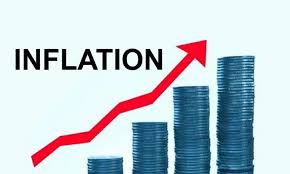The National Bureau of Statistics (NBS), reported on Wednesday that Nigeria’s headline inflation rate further surged in October 2023 to 27.33 percent, up from the 27.13% recorded in the preceding month amid spiking food and other items’ prices during the month.
The statistics agency, in its Consumer Price Index October 2023’ report published on its website, indicated that on a year-on-year basis, the headline inflation rate was 6.24 points higher compared to the 21.09% rate recorded in October 2022.
It clarified: “The increase in the headline index for October 2023 was attributed to the increase in some items in the basket of goods and services at the divisional level.
“These increases were observed in Food and non-alcoholic Beverages (14.16%), Housing, Water, Electricity, Gas & other Fuel (4.57%), Clothing & Footwear (2.09%), Transport (1.78%), Furnishings & Household Equipment and maintenance (1.37%), Education (1.08%) and Health (0.82%). Others are Miscellaneous Goods & Services (0.45%), Restaurants & Hotels (0.33%), Alcoholic Beverages, Tobacco & Kola (0.30%), Recreation & Culture (0.19%) and Communication (0.19)”, the statistics agency added
Similarly, the Bureau disclosed that the food sub-index for October 2023 increased to 31.52% on a year-on-year basis, which was 7.80% points higher compared to the 23.72% rate recorded in the corresponding month of last year.
According to the CPI report, the rise in food inflation was due to increases in prices of bread & cereals, oil & fat, potatoes, yam and other tubers, fish, fruit, meat, vegetables and milk, cheese, and eggs.
However, the NBS reported that on a month-on-month basis, the Food inflation rate in October 2023 was 1.91%, representing a 0.54% lower compared to the 2.45% rate recorded in the preceding month.
It attributed the month-on-month decline in food inflation to a decrease in the average prices of Fruits, oil and fat, coffee, tea and cocoa, bread and cereals.




